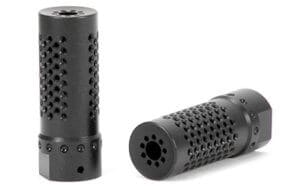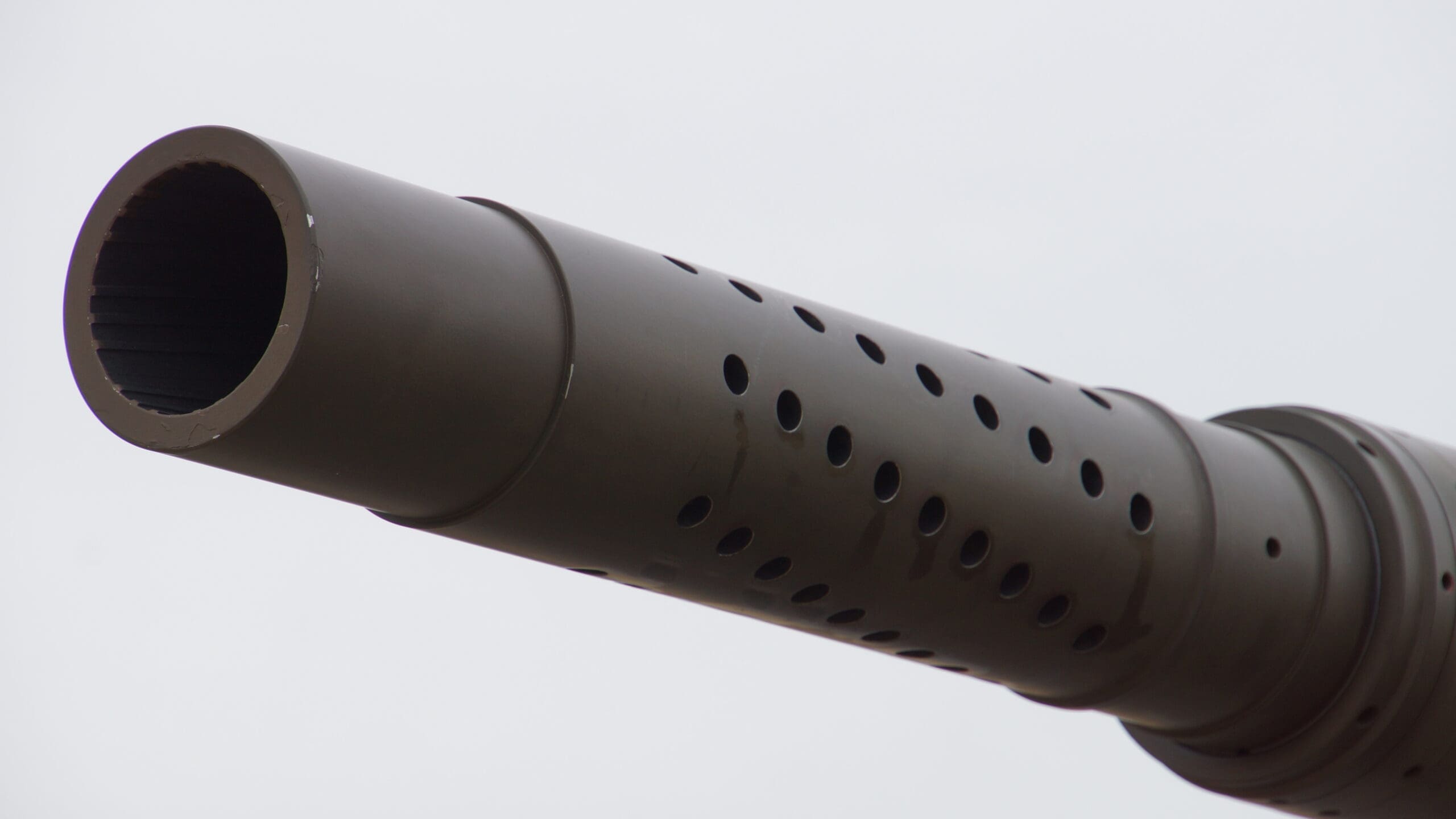If you are new to gun ownership, you may be learning the various parts of your new gun and wondering what part they play in their operation. For example, what is a muzzle brake?
As gun owners, we add accessories as we go, each of which requires some research. Muzzle brakes are one of those items that serve an important purpose. They are often associated with larger guns but are a great accessory for regular firearms.
Here we will take a closer look at what these tools do and why you should consider adding one to your gun.
What does a muzzle brake do?
In short, they help dampen recoil. This is especially true when it relates to large guns. In fact, muzzle brakes can reduce recoil by almost 50 percent.
That is incredibly helpful — especially for people who are shooting a gun with a shoulder or other recoil injury.
Most are vented in a way to push the gas through the sides. When the gun is fired, it will direct propellant exhaust gases through the muzzle. The result is a shot with less kickback.
And because shooters are not as fatigued from recoil during their shooting sessions, the muzzle brake can also help with firing more rounds accurately.
Muzzle brake details
When choosing your muzzle device, be sure you think about how you will be primarily using the firearm. This will help you determine if a muzzle brake is right for you.
Price: This is an accessory that is not cheap. A quality muzzle brake is generally around $250. In general, muzzle breaks can be screwed on to any firearm with a threaded barrel. If you own a gun with a non-threaded barrel, however, you may need a gunsmith to thread it, which can add to the overall cost. Furthermore, some guns may need a barrel installed with an integrated muzzle brake, which could cost extra.
Noise: The noise from the gunfire can be louder with a brake, especially when used with rifles. There may also be a bigger flash coming out.
To best protect your hearing, you will need to ensure you have proper hearing protection purchased. Protective earmuffs and earplugs are essential when shooting any gun, but especially so when shooting a gun with a muzzle brake.
When should you use a muzzle brake?
Muzzle brakes are more common when you have a big gun — especially artillery, tank guns, rifles with large calibers, or other service guns. These large weapons are very powerful and can be difficult to handle. That is why so many people prefer using a muzzle brake with them!
But you don’t have to have a large gun; muzzle brakes can also be used on pistols. Plus, they’re good for combat and timed-competition shooting.
It is important to note that if you are using your gun for hunting, stiff recoil on your gun is the name of the game. Muzzle brakes are not generally recommended for these scenarios because the louder noise and increased flash are not going to help you when you are out in the field eyeing a critter. For hunting situations, a flash suppressor may be a good idea.
Still not sure if you need a muzzle brake?
Our team at Sporting Systems can help you with your muzzle brake purchase and supply the necessary information you need to make your decision. We can also assist in the installation of the device and ensure it is ready to go for your next adventure in a competition or at the shooting range.
Come and visit us today to see what your options are and learn more. We have everything you need to upgrade your weapon with all the accessories you want.
A quick note: While many people use these terms interchangeably, there are differences between muzzle brakes and compensators. (Even manufacturers sometimes use the term brake when they mean compensator.)
Basically, a compensator is a type of muzzle device that functions differently than a muzzle brake. A compensator reroutes expelled gases so that the muzzle remains stable. A brake, on the other hand, directs gasses backward, this pushing the gun forward, countering the momentum.
Are you an experienced gun owner who’s interested in learning more about AR-15 muzzles, reducing felt recoil, or flash hiders (which conceal the muzzle flash)? We can help with those topics, too.
Long story short: We’re experts in everything about muzzle brakes and compensators. We know the lingo — linear compensator, compensator flash, recoil reduction, steel muzzle brakes featuring different threads such as 1/2×28 and 5/8×24, muzzle climb — and the manufacturers: VG6 Precision, Strike Industries, and more.






